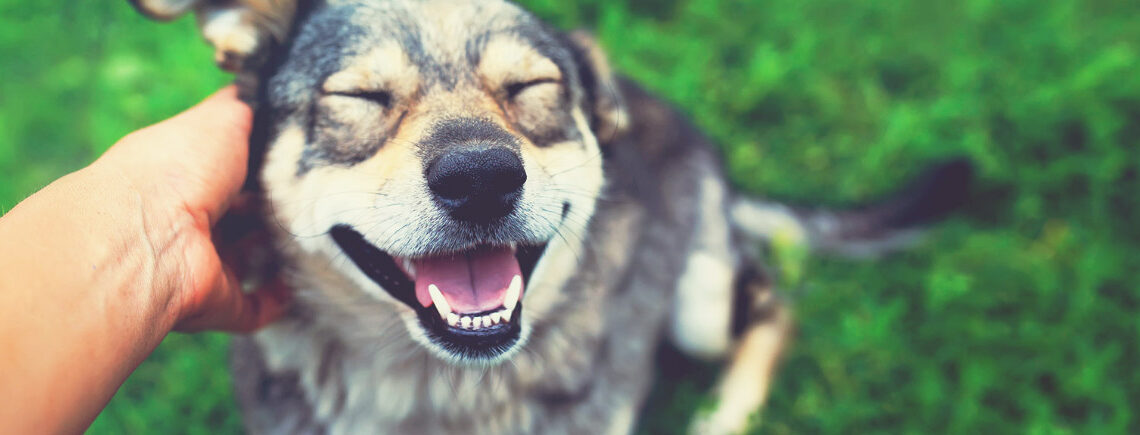Dental Care for Your Dog At Home
By the age of three, 80% of Dogs will have some form of dental disease, which is preventable with a good dental care routine.
Bad breath and plaque build-up can lead to Gingivitis which causes the gums to become red and inflamed. Usually reversable, if left untreated it can lead to Periodontitis which is an irreversible disease that results in tooth loss and can cause other health issues like kidney, heart and liver disease.
Signs that Your Dog Has Dental Health Issues
- Bad Breath
- Plaque & Tartar Build-up
- Loose Teeth
- Red, Swollen Gums
- Discomfort When Eating
- Bleeding Gums
- Receding Gums
Some Dogs are More Prone to Dental Disease
According to the Royal Veterinary College, University of London some dog breeds are more prone to dental problems than others, but the risk of dental disease increases rapidly as dogs age. Toy Poodles, Greyhounds, Flat-faced (brachycephalic) dogs, Spaniel breeds and smaller breed dogs have higher risks of dental disease than heavier breeds.

Irish Dogs
We asked Irish Dog owners to share their doggie dental care routines with us. 399 dog owners responded to our survey between 2nd and 4th August 2022.
- 30% of Respondents said that their dogs suffer with Bad Breath, rising to 48% of respondents with senior dogs.
- 26% of Dogs have plaque or tartar, and 42% of older dogs.
Bad Breath, Plaque and Tartar are early indicators of Gingivitis, and should not be ignored. A good, regular dental care routine can help; this includes toothbrushing, which can significantly reduce the risk of dental disease in all dogs.

Brushing Your Dog’s Teeth
Brushing your dog’s teeth regularly, ideally every day, is recognised as being the best way to help protect your dog from developing complex dental health problems. Starting to brush your dog’s teeth regularly from a young age will help reduce stress and discomfort that can be associated with toothbrushing.
- 58% of Respondents never brush their dog’s teeth, with this number rising to 67% for puppy owners who answered.
“Daily tooth brushing was shown to be more than three times as effective at controlling plaque accumulation compared to using a daily dental chew or dental diet.” – British Small Animal Veterinary Association, 2018.
What About Dental Chews?
Our research shows that 69% of dogs are given a dental chew regularly, but are they ok to use?
The answer to this is a resounding yes! Dental chews are a great way to supplement brushing your dog’s teeth – the Journal of Veterinary Dentistry has said that:
“Adding a dental chew to the diet resulted in statistically significant reductions in plaque and calculus accumulation, and oral malodour while improving gingival indices.” Journal of Veterinary Dentistry, 2013.
It is important however to remember when using dental chew that they do include calories, which need to be adjusted as part of your dog’s daily food intake to prevent weight gain.
Dental Chew Treats should be used as part of a balanced diet to supplement your dog’s toothbrushing, and should not replace toothbrushing as part of a dental care routine.
What About Dog Toys?
Chew toys can be really beneficial and many are formulated to help reduce plaque and fortify your dog’s teeth and gums. They work to improve dental health by providing an interactive form of dental care in the act of chewing or gnawing. Always ensure they are the correct size for your dog (small toys can be choking hazards) and that they are not too hard, as this can cause broken teeth.
What’s a Good At-Home Dental Routine for my Dog?
Ideally, brushing your dog’s teeth daily is recommended as the best way to protect your dog from dental problems. If daily brushing isn’t possible, introducing it at regular intervals is recommended. Your dog’s toothbrushing routine should be supplemented with the addition of water additives and dental chews for days where teeth are not brushed.
Tropiclean has an extensive range of dental products for your dog, including a complete oral care kit to kickstart your at-home brushing routine. It’s important your dog is used to the sensation of having their teeth brushed before visiting our grooming studio for our Ultrasonic Dental Clean; Tropiclean’s range of toothbrushes, toothpaste, gel and additives is a great place to start.
At Petmania we have an extensive dental care range available to help you care for your dog’s teeth. We also offer a Professional Toothbrushing Service at our Grooming Studios Nationwide. We use an Ultrasonic Toothbrush which is vibration-free and silent, and is available for all dogs over the age of 14 weeks old.
Does My Dog Need to Go to the Vet?
If your dog shows any the signs of dental disease listed above, you should go to your vet for a dental check. Regular visits to your vet are also recommended as advanced dental problems can only by veterinary examination beneath the gumline. A regular dental check-up should form part of your dog’s dental care routine and cannot replace a good at-home regime.

